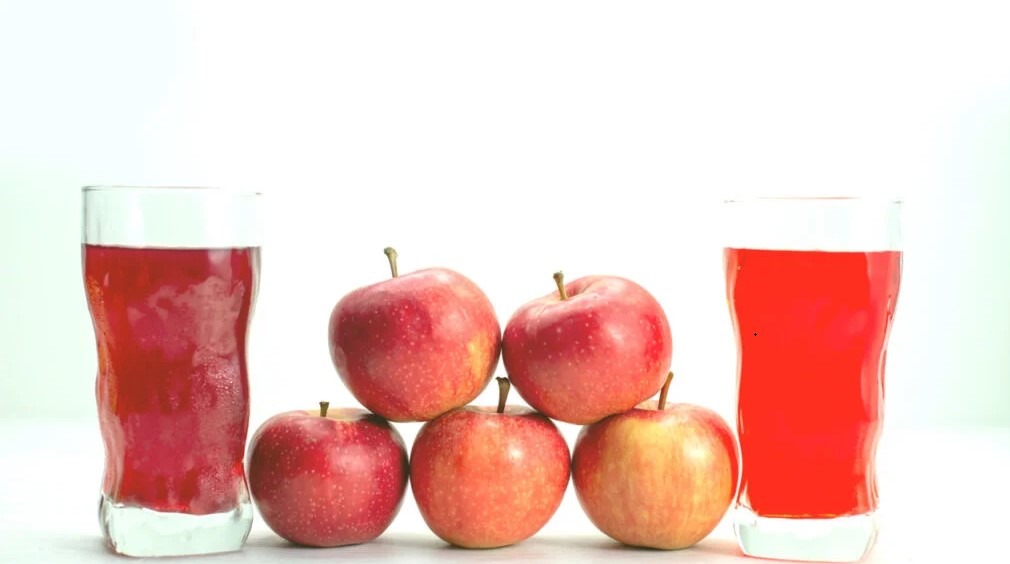Apple juice is a good beverage for all but is apple juice a heterogeneous mixture?
In this document, you will learn how to analyze heterogeneous mixtures. Apple juice is a good source of vitamin C and antioxidants which is good for your immune system, apple juice contains high sugar content is not good for a diabetics patient.

What Is A Heterogeneous Mixture?
A heterogeneous mixture is a mixture in which the composition is not uniform throughout the mixture.
This means that the different components of the mixture can be easily distinguished from each other. Heterogeneous mixtures can be made up of two or more substances, and the components can be of different sizes, shapes, and colors.
Is Fruit Juice Heterogeneous?
Fruit juice can be considered heterogeneous to some extent. Heterogeneity refers to the presence of different components or substances within a mixture. Fruit juice typically consists of water, sugars, acids, vitamins, minerals, and various compounds responsible for the flavor and aroma of the fruit.
Although fruit juice may appear uniform and consistent in texture, it contains different particles and substances that are not evenly distributed throughout the liquid.
For example, pulp or small fruit particles may be present in freshly squeezed or unstrained fruit juice, adding to its heterogeneity. Even in commercially processed fruit juices, some degree of heterogeneity can exist due to variations in the distribution of suspended solids, such as pulp, and variations in sugar content or other additives.
Additionally, factors like settling and separation of components may occur over time, causing the juice to further exhibit heterogeneity. If left undisturbed, heavier particles or sediments may settle at the bottom, leading to a non-uniform distribution.
Overall, while fruit juice may not exhibit the same level of heterogeneity as a mixture with visible distinct phases, it still contains multiple components that contribute to its overall composition, making it somewhat heterogeneous.
Does Apple Juice Compare With Water?
Apple juice and water are two different beverages with distinct characteristics. Here’s a comparison between the two:
Composition: Apple juice is primarily made from the extracted juice of apples, while water is a natural liquid composed of hydrogen and oxygen molecules.
Flavor: Apple juice has a sweet and fruity flavor due to the natural sugars present in apples. On the other hand, water is tasteless and does not have any distinct flavor.
Nutritional Content: Apple juice contains calories, carbohydrates, sugars, and small amounts of vitamins like vitamin C. Water, on the other hand, is calorie-free and does not contain any macronutrients or significant vitamins.
Hydration: Water is essential for maintaining hydration in the body. It helps regulate body temperature, supports organ function, and aids in digestion. Apple juice also provides some hydration due to its high- water content, but it also contains sugars and calories.
Sugar Content: Apple juice naturally contains sugars from the fruit itself. While it can be a source of energy, excessive consumption of sugary beverages like apple juice can contribute to weight gain and dental issues. Water, being sugar-free, does not have these concerns.
Health Benefits: Water is vital for overall health and is necessary for numerous bodily functions. It promotes healthy skin, aids digestion, helps with nutrient absorption, and supports joint health. Apple juice, while containing some nutrients from apples, should be consumed in moderation due to its sugar content.
In summary, while apple juice can be a flavorful and enjoyable beverage, water remains the go-to choice for hydration and offers a range of health benefits without the calories or sugar content. It’s important to balance your beverage choices and consider your overall dietary needs.
Is Apple Juice Acidic?
Apple juice typically has a pH level ranging from 3.3 to 4, which indicates that it is mildly acidic.
pH is a scale that measures the acidity or alkalinity of a substance, with values below 7 considered acidic. Although apple juice is generally considered to be mildly acidic, it is not as acidic as some other fruit juices like orange juice or grapefruit juice.
It is important to note that pH levels can vary slightly depending on factors such as the variety of apples used and the processing methods employed by different manufacturers.
Is Apple Juice A Heterogeneous Mixture?
No, apple juice is not considered a heterogeneous mixture. A heterogeneous mixture is one in which the components are visibly distinct and not evenly distributed throughout the mixture.
In the case of apple juice, it is a homogeneous mixture because the components (water, sugar, vitamins, and apple juice concentrate) are uniformly distributed, resulting in a consistent composition and appearance throughout the liquid.
However, it’s worth noting that if pulp or sediment is present in the apple juice, it may appear slightly heterogeneous, but overall, it is still considered a homogeneous mixture.
What Type Of Solution Is Apple Juice?
Apple juice is a homogeneous solution. A homogeneous solution is a mixture in which the composition is uniform throughout the mixture.
This means that the different components of the mixture cannot be easily distinguished from each other. Homogeneous solutions are also called true solutions.
In the case of apple juice, the solvent is water and the solutes are the sugars, acids, and other nutrients that are found in apples. The water molecules are evenly distributed throughout the mixture, so the apple juice has a uniform taste and color.
Conclusion
Apple juice can be enjoyed in many ways. You can drink a glass of it, add it to cakes and desserts, or mix it with other juice to create your flavor combinations. A small dollop of apple juice added to vinegar will also produce a tasty condiment.
